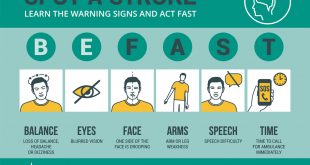By Mark Olson, Ph.D., LMT


Trauma and Pain are Often Interconnected
Unlike acute pain, chronic pain is rarely associated with problems in the tissues. It’s almost always based on real changes in the neuroendocrine or immune systems. But most don’t realize this and keep looking for a tissue-based explanation and treatment. Sometimes these changes to the nervous system arise from trauma.
Numerous studies and research points to the root cause of many individuals’ chronic pain, stemming from past trauma or developmental trauma. In recent years, the significant impacts of developmental trauma on physical health and social wellbeing has become more widely known. Like pain, trauma is complex and often counter-intuitive, and because it plays an enormous role in creating what we often describe as “personality.”
The effects of military warfare and traumatic experiences that affect our servicemen and women in what’s known as PTSD (post-traumatic stress disorder) is widely known. These individuals often have ongoing physical pain and chronic disorders, which is related to the distressing events of their past. A recent study looked at several decades of cross comparative research on the effects of childhood trauma in people with anxiety disorders and chronic pain.1
Previous research indicates that chronic pain and anxiety can share common risk factors.2 One common risk factor may be early experience of childhood trauma, e.g., emotional abuse, physical abuse, sexual abuse, and emotional and physical neglect, which can change neurohumoral regulation of the hypothalamic-pituitary-adrenal axis and have effects on the autoimmune system, which can produce vulnerabilities for later psychopathology as well as pain conditions.2 Individuals reporting emotional and physical abuse and emotional neglect have higher odds of suffering from anxiety or adjustment disorder with concurrent long-term pain.
Chronic and Persistent Pain
For individuals with persistent pain, Affinity Wellness Education (AWE) specializes in educational courses to help you understand why your pain emerges and what you can do to mitigate it. We also focus largely on understanding the root cause and how to engage with and help others who are dealing with pain.
Affinity Wellness Education provides adult education classes on topics of key relevance to personal and societal health and wellbeing. We focus on the topics of trauma, chronic pain, and interpersonal relating because they occupy a huge role in so many people’s lives and because there aren’t many options for practical learning about these topics.
Education and Interactive Exercise Work
Synergistically
We aim to provide individuals with a rich, in-depth understanding of trauma and chronic pain so they are better equipped to help and advocate for others and themselves in the most effective manner possible. To do this, we explore the neuroscience behind trauma and pain and then we take the essential step of moving from lecture to lab, engaging in interactive exercises that allow us to feel or embody the ideas and develop real-world practical skills that can’t be gained with “book knowledge” alone. Interactive exercises are primarily for trauma not pain.
Shame, Hopelessness and Addictive Drugs
Prevent Healing
Individuals with chronic pain too often find themselves on a long and futile journey that involves a lot of over-simplistic solutions, false hope, unnecessary expenses, and unsupportive attitudes from family, friends, and healthcare professionals. But it doesn’t have to be that way—the more people become educated about pain, the better the process and outcomes will be.
About Affinity Wellness Education
As director of the Pacific Center for Awareness and Bodywork in Hawaii, my goal was to teach massage therapists key educational skills and knowledge that are lacking in traditional trainings. These include trauma, pain, and relational skills. These integrational principles were clearly relevant to everyone, especially those with persistent pain. Many people saw the benefit of educating their patients and the public on the principles and protocols we founded.
Affinity Wellness Education grew out of the growing demand to take some of the unique neuroscience and relational content that my program offered and make it available to a wider audience.
To find out more, please visit AffinityWellnessEducation.com.
Mark Olson, Ph.D., LMT has an M.A. in Education and a Ph.D. in Neuroscience, specializing in Cognitive and Behavioral Neuropsychology and Neuroanatomy from the University of Illinois where he studied memory, attention, and eye movements. Dr. Olson is a NARM® Practitioner, an aquatic therapist, and a published author (including recent articles on Pain and Trauma-informed Bodywork), and he is the owner and director of the Pacific Center for Awareness & Bodywork in Kaua`i, which integrates the latest understanding of trauma and relational neuroscience into the bodywork program, and Affinity Wellness Education in Florida, which provides education on trauma, pain, and relational skills for laypersons and helping professionals.
…………………………………………
References:
1. Kascakova N. The Unholy Trinity: Childhood Trauma, Adulthood Anxiety, and Long-Term Pain. 2020, doi: 10.3390/ijerph17020414, PMC7013389, 31936285
2. Nemeroff C.B. Paradise lost: The neurobiological and clinical consequences of child abuse and neglect. Neuron. 2016; 89:892–909. doi: 10.1016/j.neuron.2016.01.019.
 Southwest Florida's Health and Wellness Magazine Health and Wellness Articles
Southwest Florida's Health and Wellness Magazine Health and Wellness Articles

